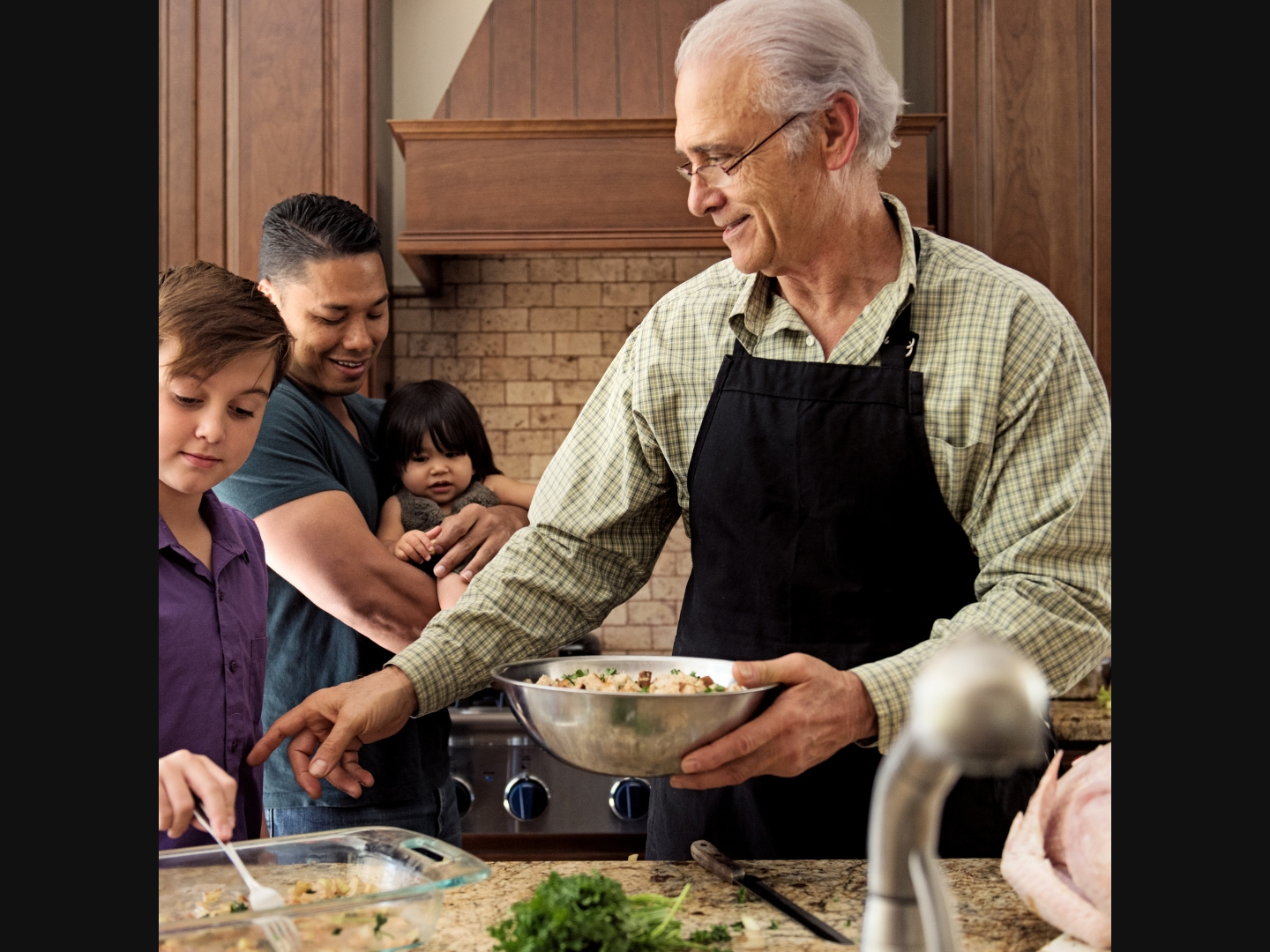
Holiday traditions, family gatherings, and home-cooked meals are a treasured part of the holiday season. With Thanksgiving just days away, families are hard at work preparing for Thanksgiving dinner and spending time with loved ones. Meal prep can be overwhelming and stressful especially when cooking for a large group of people. With distractions all around, it’s easy to make mistakes that may cause guests to leave with more than full bellies.
Common Thanksgiving Fails
- Forgetting to thaw the turkey
- Undercooking the turkey or stuffing
- Cooking the turkey in the packaging
- Forgetting about a guest’s food allergy
- Eating the fake fruit and vegetables used for table decorations
“Whether you’re preparing dinner for two or a large group, following simple food safety steps will keep everyone at the table from becoming sick,” says Diane Calello, executive and medical director of the New Jersey Poison Control Center at Rutgers New Jersey Medical School. “Foods can become contaminated with germs at any point of the food production chain — from farming to grocery stores to kitchens and leftovers. Preparing, cooking, or storing foods incorrectly can make them unsafe to eat.”
Find out what's happening in South Brunswickwith free, real-time updates from Patch.
Everyone is at risk for foodborne illness (also known as food poisoning) but young children, pregnant women, and people with weakened immune systems are more likely to get sick from eating foods contaminated with bacteria and other germs.
Foodborne illness is common and can cause mild to severe sickness. Symptoms may include nausea, vomiting, stomach cramps, diarrhea, upset stomach, and fever. A person may not feel sick right away because symptoms may appear a few hours or days after consuming contaminated food or drinks. Anyone who is feeling sick (cold, flu, RSV, or COVID-19) should not prepare or cook foods for other people because their germs can spread to foods and drinks.
Find out what's happening in South Brunswickwith free, real-time updates from Patch.
Raw poultry, meat, and seafood can spread germs to anything they touch — foods, hands, countertops and surfaces, sinks, utensils, dishes, containers, and cutting boards. When preparing and cooking food, follow these four safety steps (Clean, Separate, Cook, and Chill). Cooking foods to the right temperature kills germs and prevents people from becoming sick.
Cooked foods can also make guests sick if left out on the table or counter for too long before putting them in the refrigerator. Bacteria and other germs grow quickly in foods that reach temperatures in the “Danger Zone” — between 40°F and 140°F. When serving food, keep foods at safe temperatures — hot foods hot and cold foods cold. It is unsafe to leave foods including pies that contain dairy or eggs out of the refrigerator or freezer for more than two hours.
According to the USDA (United States Department of Agriculture), hot foods can go straight into the refrigerator without cooling first. If reheating leftovers, use a food thermometer to make sure the food reaches at least 165°F.
If this year’s holiday dinner includes turkey, follow these important steps to prevent illness.
- Allow enough time for the turkey to fully defrost. A partially frozen turkey will cook unevenly leaving parts undercooked.
- Handle the turkey safely to prevent spreading germs to other foods.
- Do not wash or rinse raw turkey.
- Cook the stuffing separately from the turkey.
- Use a food thermometer to make sure turkey and other foods are cooked to safe temperatures.
- Store leftovers safely.
If you think someone came in contact with something dangerous, contact the New Jersey Poison Control Center immediately for medical treatment advice. Poison control centers are a medical resource for both the public and healthcare professionals. Get help 24/7. Call 1-800-222-1222 or Chat Here. If someone is not breathing, hard to wake up, or having a seizure, call 9-1-1.
Stay connected on social: Facebook Twitter Instagram YouTube TikTok
Media contacts only: Alicia Gambino